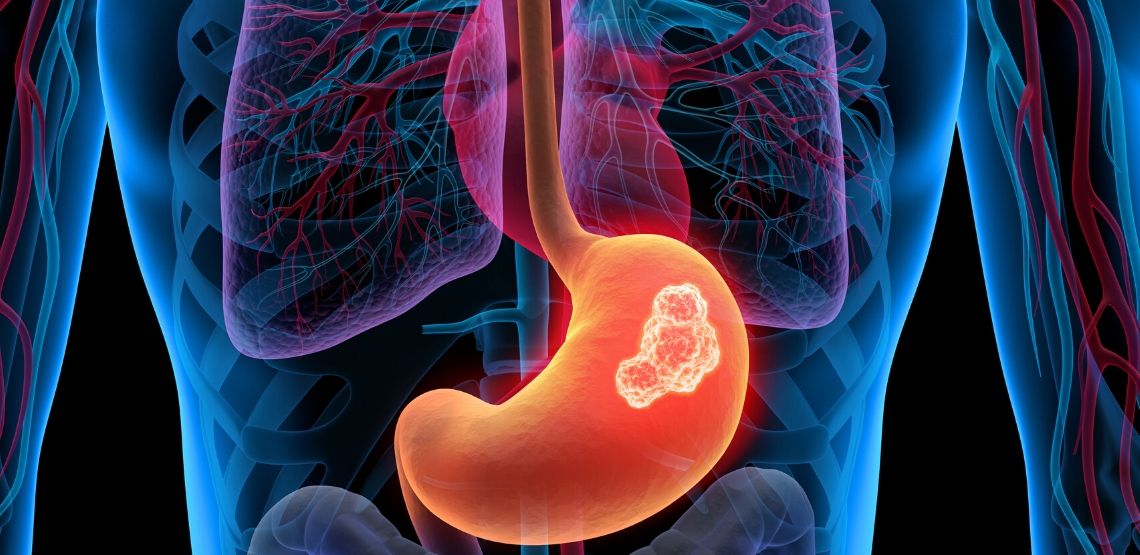Knowing the Early Symptoms of Stomach Cancer
Rates of general stomach cancer have been decreasing worldwide. However, rates of stomach cancer that occur in the cardia (where the stomach meets the esophagus) have become more common. It is important to know what the early symptoms of stomach cancer look like.
Each type of stomach cancer may have different symptoms, different degrees of aggression and different prognoses.
Different Types of Stomach Cancer
According to Cancer Treatment Centers of America, there are multiple types of stomach cancer.
Adenocarcinomas
Adenocarcinomas are the most common form of stomach cancer. This type of stomach cancer develops in the lining of the stomach. According to Mayo Clinic, adenocarcinoma develops in the cells that produce mucus, which line the stomach. These make up the majority of stomach cancers.
Lymphoma
Lymphoma is another type of cancer that occurs in the stomach. It is a cancer of the immune system that can develop in any place that has lymph tissue. This includes the stomach. However, lymphoma in the stomach is rare. It only accounts for about 4% of all cases of stomach cancer.
Gastrointestinal Stromal Tumors
Gastrointestinal stromal tumors are another rare form of stomach cancer. This type of cancer forms in cells called ICCs, or interstitial cells of cajal. These cells look similar to muscle and nerve cells. While these types of tumors can develop throughout various areas of the digestive tract, most of these occur in the stomach (between 60% to 70%).
Carcinoid tumors
Carcinoid tumors are another type of stomach cancer. This type of stomach cancer develops in the stomach cells that produce hormones. These types of tumors are fairly rare and do not spread to different organs. They make up about 3% of instances of stomach cancer. There are three types of gastric carcinoid tumors.
Symptoms of Stomach Cancer
Like other cancers, the symptoms of stomach cancer depend on a variety of factors, such as the location of the tumor, where it may have spread and how aggressive the cancer is.
According to Mayo Clinic, symptoms can include:
- Fatigue
- Bloating after eating
- Feeling full after eating small amounts of food
- Severe, persistent heartburn
- Severe indigestion that is always present
- Unexplained, persistent nausea
- Stomach pain
- Persistent vomiting
- Unintentional weight loss
If you experience any of these symptoms, it is important to visit your doctor. They will be able to determine whether it may be related to stomach cancer or something different.
Stages of Stomach Cancer
Different stages of progression may present different types of symptoms. There are four different stages of stomach cancer.
Stage One
The cancer is divided into two separate sub-stages. When the cancer forms in the mucosa and it may or may not have spread to the submucosa. This is stage 1A. By stage 1B the cancer has reached one or two lymph nodes and has reached the muscle layer.
Stage Two
By Stage 2A, the cancer may have spread to the stomach wall. It also may have spread to three to six lymph nodes, or it has spread to the stomach wall’s muscle layer.
Stage Three
By stage 3A, the cancer has spread to the muscle layer and seven to 15 lymph nodes. If it has spread to the subserosa, then three to six lymph nodes have been infected. If it has spread to the serosa, then nearby organs like the liver, colon, or kidney could be infected.
At stage 3B, the cancer has infected more than 16 nearby lymph nodes, as well as the submucosa, or it has spread to the subserosa. By stage 3C, the cancer has spread to the subserosa, the serosa and 16 lymph nodes. It could also have infected other organs and has infected more than seven lymph nodes.
Stage Four
By stage 4 of stomach cancer, the cancer will have spread to other areas of the body such as distant lymph nodes, the liver and lungs.
As we discussed earlier, where the cancer spreads and how it progresses will determine which specific symptoms you may experience both during early and later stages of stomach cancer.
